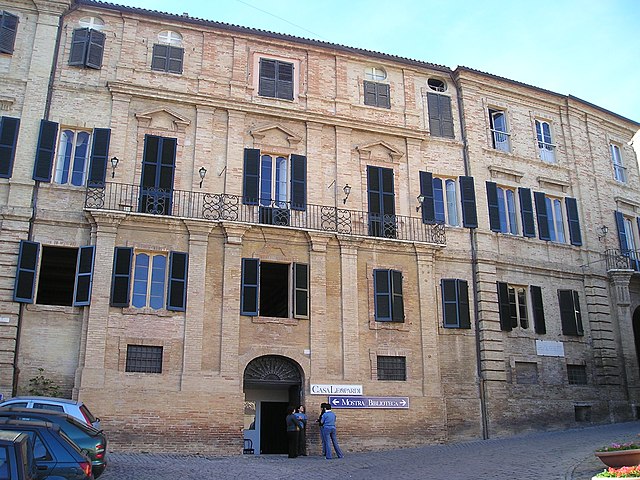Count Giacomo Taldegardo Francesco di Sales Saverio Pietro Leopardi was an Italian philosopher, poet, essayist, and philologist. He is considered the greatest Italian poet of the nineteenth century and one of the most important figures in the literature of the world, as well as one of the principals of literary romanticism; his constant reflection on existence and on the human condition—of sensuous and materialist inspiration—has also earned him a reputation as a deep philosopher. He is widely seen as one of the most radical and challenging thinkers of the 19th century but routinely compared by Italian critics to his older contemporary Alessandro Manzoni despite expressing "diametrically opposite positions." Although he lived in a secluded town in the conservative Papal States, he came into contact with the main ideas of the Enlightenment, and, through his own literary evolution, created a remarkable and renowned poetic work, related to the Romantic era. The strongly lyrical quality of his poetry made him a central figure on the European and international literary and cultural landscape.

Portrait by S. Ferrazzi, c. 1820
The Palazzo Leopardi in Recanati
A portrait of Leopardi
Leopardi on his deathbed
Philology is the study of language in oral and written historical sources. It is the intersection of textual criticism, literary criticism, history, and linguistics with strong ties to etymology. Philology is also defined as the study of literary texts and oral and written records, the establishment of their authenticity and their original form, and the determination of their meaning. A person who pursues this kind of study is known as a philologist. In older usage, especially British, philology is more general, covering comparative and historical linguistics.
Cover of Indo-European Philology: Historical and Comparative by William Burley Lockwood (1969)





